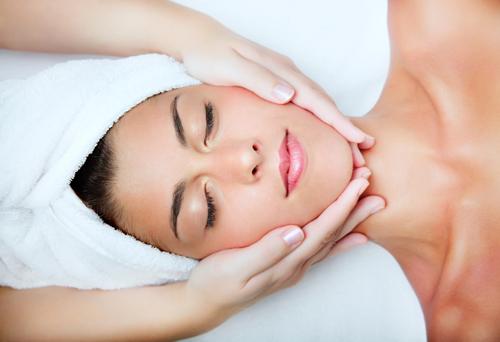
To prevent blemishes and problematic skin, it is important to use proper techniques to cleanse the face and body. (Courtesy of thecheatlestherapyroom.com)
As the school year winds down, the temperature kicks up and the stress of finals looms ahead, it can only mean one thing: skin problems.
For college students, the end of the semester creates the “perfect storm” for skin issues. From acne and irritation to dryness and blemishes, having an uncontrollable imperfection just adds to this end of the semester stress. Sometimes our skin can be easily forgotten in these pressure-filled times.
Although our skin can be overlooked, it is actually the largest organ in the human body. Spanning 20 feet, our skin keeps us alive by fortifying our bodies from diseases and other harmful toxins.
The skin regulates the body’s internal temperature, which is vital for existence. When our skin is not taken care of properly, it poses consequences to our health and well-being.
One of the places people see most notable skin abnormalities is with the emergence of acne. According to the American Academy of Dermatology, 40 to 50 million Americans have acne at some time in their life. While most people are aware of the blemishes and irritation acne causes, many are unaware of the real truth behind acne.
Acne is a skin disease that can take the form of cysts, blackheads, whiteheads, papules and nodules. When dirt and oil trap dead skin cells, they clog the pores and cause acne to form.
Residual bacteria can also create acne symptoms.
Acne is not just limited to the face; it can actually affect any area of skin.
Not treating acne will undoubtedly allow the disease to spread. Acne needs proper handling and can lead to “cystic” symptoms that require intense oral prescription use when not treated properly.
This intense strain of acne also causes permanent scarring to the skin. Not only does acne have physically damaging effects, but it results in emotional strain as well. From low self-esteem to depression, acne can be shameful for its victim.
Acne can affect anyone, even babies and elderly adults. However, adolescents and college students are acne’s prime targets. Washing your face is not the only way to prevent acne.
Changing these habits and influences on acne can actually save your skin. Here are a few ways to do so:
Diet. Through scientific research, it has been proven that certain foods can cause or reduce acne. Foods that are high in fat and sugar content produce acne by increasing hormones that lead to pimples.
Instead of feeding your body these types of foods, switch to low fat dairy products. One of the essential vitamins the skin needs is Vitamin A.
Fruits such as blueberries and strawberries contain high levels of antioxidants that also combat acne.
Cleaning. Washing your face can be a tedious task, however it is extremely essential for clear, healthy skin. Our faces should be washed at least morning and night, and especially after any type of physical activity. Since dirt and oils are the leading cause to blocking dead skin cells and clogging pores, it is crucial to wash your face immediately after sweating.
Finding the right skin wash is an important factor in keeping skin healthy. If your face is oily, products with salicylic acid are the choice for you. However, if your skin tends to be dry, use a gentler product.
Stress. Stress is a leading factor in acne growth. When we are stressed, our hormone levels change and our bodies release more oil and the hormone cortisol.
Also, with stress comes an improper diet, lack of sleep and less attention to taking care of your skin. Stress leads to the neglect of skin health and needs to be reduced during these crazy times.
Ways to do this are to exercise, maintain organization, take breaks from studying and most obviously, get sleep.
Sleep. We are consistently told to get more sleep, but in the midst of finals that can be a daunting task.
With lack of sleep comes a rise in acne. What causes this steady increase with a lack of sleep is sharp growth in inflammation. According to the Journal of Clinical Endocrinology & Metabolism reports, sleep deprivation causes a 40 to 60 percent increase in inflammatory markers, the heart of acne flare-ups.
Cutting sleep results in insulin resistance that exacerbates acne. Lastly, a lack of sleep leads to mood changes. With emotional stress, comes the hormonal imbalance, increasing acne.
Although college is crunch time, we need to see the importance in maintaining healthy lifestyles to combat these potential problems.
As finals approach, reduce your stress, get some more sleep, clean your skin properly and eat well. The results will be well worth your while.










